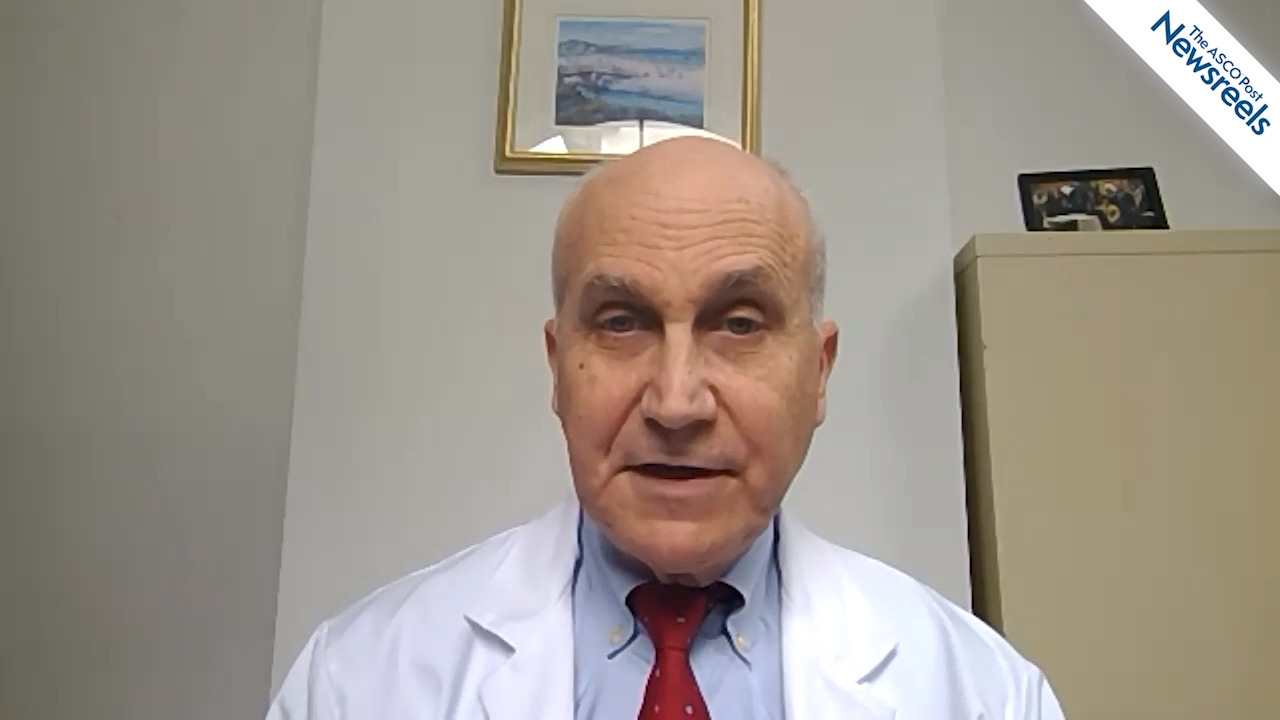Shivan J. Mehta, MD, MBA, on Preventing and Controlling HPV-Associated Cancers
NCCN 2021 Virtual Annual Conference
Shivan J. Mehta, MD, MBA, of Abramson Cancer Center at the University of Pennsylvania, discusses how insights from behavioral economics could be harnessed to improve HPV vaccination rates, thus lowering the rate of cervical, genital, and head/neck cancers, all of which are linked to HPV.
The ASCO Post Staff
Eric Jonasch, MD, of The University of Texas MD Anderson Cancer Center, discusses the several hereditary renal cell cancer syndromes, the importance of surveillance for both renal and nonrenal manifestations, and the treatment options available.
The ASCO Post Staff
Gabrielle A. Zecha, PA-C, MHA, of Fred Hutchinson Cancer Research Center and Seattle Cancer Care Alliance, and Aaron Begue, MS, RN, NP-C, OCN, of Memorial Sloan Kettering Cancer Center, discuss how advanced practice providers are recruited and trained, ways to retain these valuable health-care professionals in the face of burnout, metrics to measure their productivity, and their future role in cancer care.
The ASCO Post Staff
David G. Pfister, MD, of Memorial Sloan Kettering Cancer Center, discusses the many considerations when caring for patients with head and neck cancers, such as dental and nutritional issues; side effects from radiation, including necrosis of the bone; oral health; problems with speech; and the concerns of younger patients who may have to cope with the sequelae of treatment such as altered function or disfigurement for years to come.
The ASCO Post Staff
Thomas K. Varghese, Jr, MD, of Huntsman Cancer Institute at the University of Utah, summarizes a panel discussion on how the COVID-19 pandemic has interrupted cancer screenings, when telemedicine works and when it doesn’t, opening alternative care sites in the community, and the emotional and mental toll the coronavirus has taken on health-care providers.
The ASCO Post Staff
Lori J. Wirth, MD, of Massachusetts General Hospital Cancer Center, discusses the common molecular alterations across thyroid cancer subtypes; targeted treatments for BRAF V600E–mutant, NTRK–fusion positive, and RET–altered disease; and optimal therapies for patients with multiple types of thyroid cancer.





